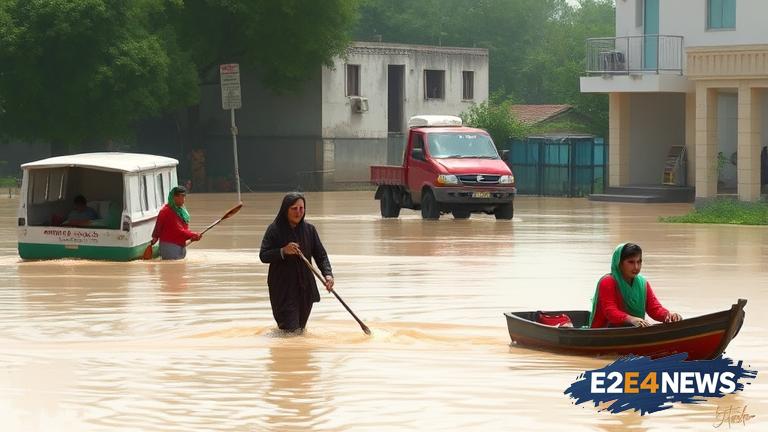Pakistan is facing one of its worst natural disasters in recent history, with floods affecting over 30 million people and causing widespread destruction. The death toll has risen to over 1,700, with many more injured or missing. The floods have been caused by heavy monsoon rains, which have been exacerbated by climate change. The government has declared a state of emergency and is working to provide relief to affected areas. However, the scale of the disaster is overwhelming, and many people are still waiting for help to arrive. The floods have destroyed homes, roads, and bridges, leaving many communities cut off from the rest of the country. The agricultural sector has also been severely impacted, with crops and livestock destroyed. The economic impact of the floods is expected to be significant, with estimates suggesting that the damage could run into billions of dollars. The international community has begun to respond to the crisis, with many countries offering aid and assistance. The United Nations has launched an appeal for $160 million to support relief efforts. The Pakistani military has been deployed to assist with relief efforts, and many non-governmental organizations are also working to provide aid. Despite these efforts, many people are still in desperate need of help, and the situation remains dire. The floods have also raised concerns about the country’s infrastructure and disaster preparedness. Many experts have criticized the government’s response to the crisis, saying that it has been slow and inadequate. The floods have also highlighted the need for more investment in climate resilience and disaster risk reduction. The Pakistani government has pledged to do more to support affected communities, but it will likely take many months, if not years, for the country to recover from this disaster. The floods have also had a significant impact on the country’s education and healthcare systems, with many schools and hospitals destroyed or damaged. The psychological impact of the floods should not be underestimated, with many people experiencing trauma and stress. The government has established a fund to support affected families, but more needs to be done to support those who have lost loved ones or livelihoods. The international community must continue to support Pakistan as it responds to this crisis, and the country must also take steps to reduce its vulnerability to future disasters. The floods are a stark reminder of the need for urgent action on climate change, and the importance of investing in disaster risk reduction and management. The people of Pakistan are resilient and determined, but they need support and assistance to recover from this devastating disaster. The government and international community must work together to provide relief, rehabilitation, and reconstruction efforts to support affected communities. The road to recovery will be long and challenging, but with the right support and assistance, Pakistan can rebuild and emerge stronger from this crisis.
